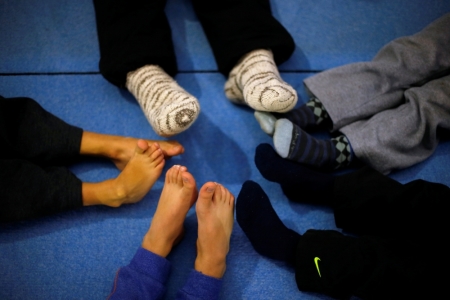Do Religious People Have More Children Than the Non-Religious?

Two recent studies on religion versus family size have revealed just how faith influences reproduction.
A recent study conducted by the journal Proceedings of the Royal Society B analyzed over 3.6 million women of different faiths across 32 countries, and concluded that religious people are more likely to have more children than non-religious ones, according to Fox News.
The Royal Society B study, which used the Minnesota-based Integrated Public Use Microdata Series International Census as a source, also found that women in marriages where both husband and wife practiced the same religion were more likely to have more children and less likely to have no children.
A 2015 Pew Research Center examined various world religions, as well as non-believers, to determine which were the most and least reproductive among them. The study focused on 35,000 Americans (ages 40-59) of varying faiths including Mormons, Black Protestants, Evangelical Protestants, Mainline Protestants, Buddhists, Hindus, Catholics, Jews, Atheists and Agnostics.
Of the groups included, Buddhists were the least reproductive with 80 percent being non-parents. "Nones" came in second with 74 percent as non-parents. Both the Jewish and Mainline Protestants were tied at 74 percent. Jehovah's Witnesses weighed in at 71 percent, while Catholics and Orthodox Christian were both at 70 percent. A more detailed list of the findings can be found here.
Some religious moms with large families say their faith makes things easier at home.
One Northern Virginia mother who home schools her kids relies on her faith for stamina.
Elsa Hoffman said, "If it weren't for my faith, I would not have the grace or stamina to enjoy the big family I have, nor understand how it fulfills the mission of my life," Fox News reported.
Hoffman added that she sees every one of her children as a gift from God and as her personal mission.
"It's my purpose and an eternal investment for the future of my soul and theirs," she said. "What could be more fulfilling, enriching, and edifying?"
One Washington, D.C. area mom with 10 children, who went by the ficticious name Maria Smith, says faith played a critical role in her having a large family. Smith says that married couples take a vow to "accept children lovingly from God," saying that it could mean having three children or 10.
"If I had only had four kids and said, 'That's enough, I can't do anymore,' then I wouldn't have the other six, and I love them so much. Through them I understand God's plan."
A writer at The Weekly Standard agreed in a 2013 interview with The Christian Post that those who are more religious tend to have higher birth rates, but warned "the fertility difference between seculars and religious adherents is so great, it overwhelms the attrition rate among religious believers and the pass-on rate of religious believers to their children."





















